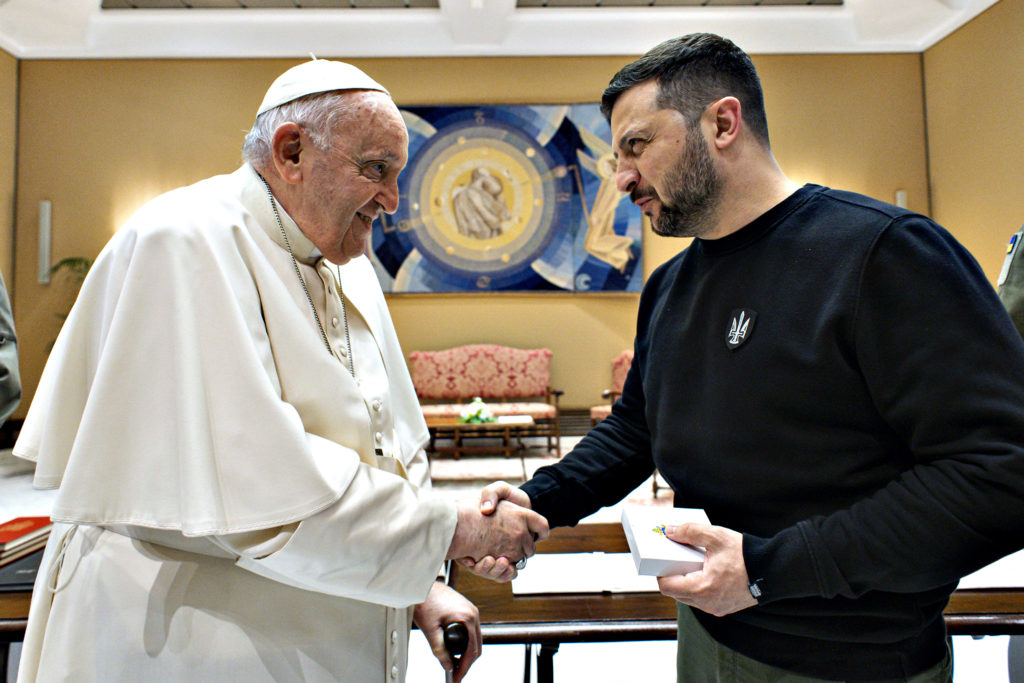
The war between Russia and Ukraine has been a prolonged and devastating conflict., with significant humanitarian and geopolitical consequences. In the midst of this chaotic scenario, efforts were made to seek a peaceful solution and establish a peace plan between the two nations. However, Ukrainian President Volodymyr Zelensky has shown a refusal to go ahead with the proposals presented so far.
Although the current conflict is little more than a year old, tensions between the two countries are much older and have already been the object of attempts to establish peace agreements. Among the most outstanding attempts are:
- Minsk Accords: The Minsk Agreements, signed in 2014 e 2015, were major international efforts to resolve the crisis in eastern Ukraine. These agreements provided for a ceasefire, the withdrawal of foreign troops and the restoration of Ukrainian territorial integrity. However, these agreements were not fully implemented and fighting continued.
- Normandy Initiative: On Normandy initiative, led by Germany and France, sought a political solution to the conflict in Ukraine. It involved meetings between Russia's leaders, Ukraine, Germany and France, with the aim of finding a diplomatic solution. However, yet, the results of these negotiations have been limited.
- unilateral ceasefire: On several occasions, Ukraine announced unilateral ceasefires as a goodwill gesture to promote dialogue and seek a peaceful solution. However, these truces were not lasting, and fighting broke out on several occasions.
As we consider the current conflict, it is also possible to see that proposals do not seem to emerge that effectively lead to pacification. On the one hand, Russia's demands are very deep.
One of Russia's main proposals is for Ukraine to pledge never to join NATO.. Ukraine, in its turn, rejects this requirement, as it sees NATO as a guarantee of its security.
Another Russian proposal is for Ukraine to recognize the independence of the breakaway regions of Donetsk and Luhansk.. Ukraine also rejects this requirement., as he sees this as an acknowledgment of Russia's illegal annexation of Crimea.
Russia also demanded that Ukraine demilitarize and denazify. Ukraine denies it is a Nazi country and says it will not demilitarize, as this would leave it vulnerable to a further Russian attack..
on the other hand, the ukrainian president, Volodymyr Zelensky, has refused to go ahead with any of the Russian peace proposals, saying it will not give in to any demands that threaten Ukraine's sovereignty or territorial integrity.
One of the most recent attempts to pursue a peace plan was proposed by Pope Francis.. The peace plan has been met with caution and skepticism by both warring parties.. Russia has said it is open to discussing the plan., but that it will not give in to any demand that threatens its national security. Ukraine, in its turn, said she is willing to discuss the plan, but that it will not accept any agreement that does not recognize its sovereignty and territorial integrity.
Pope Francis' peace plan includes a series of proposals, including:
- An immediate ceasefire;
- Withdrawal of Russian troops from Ukraine;
- The guarantee of the territorial integrity and sovereignty of Ukraine;
- Ensuring Ukraine's security against future attacks;
- The establishment of a truth and reconciliation commission;
- Providing humanitarian aid to war victims.
Pope Francis' plan is an important step towards finding a peaceful solution to the war in Ukraine. However, It is important to note that the plan is only a proposal, and that both parties to the conflict need to be willing to make concessions for an agreement to be reached.
While on the Russian side the moves are towards seeking a solution that considers a reality different from the one in which the conflict began, on the ukrainian side there is a low availability for talks in the multilateral scope. during the date, the Ukrainian president went so far as to declare that “we don't need mediators” for the conflict, which explains his more incisive position on continuing the war to achieve a total victory.
Regardless of the ideological or geopolitical position that each one may adopt, Efforts must be directed towards building a proposal that ends the war and not one that leads to victory for one side or the other. Civil societies in both countries are suffering, as well as the rest of the world, with the consequences of this war.
